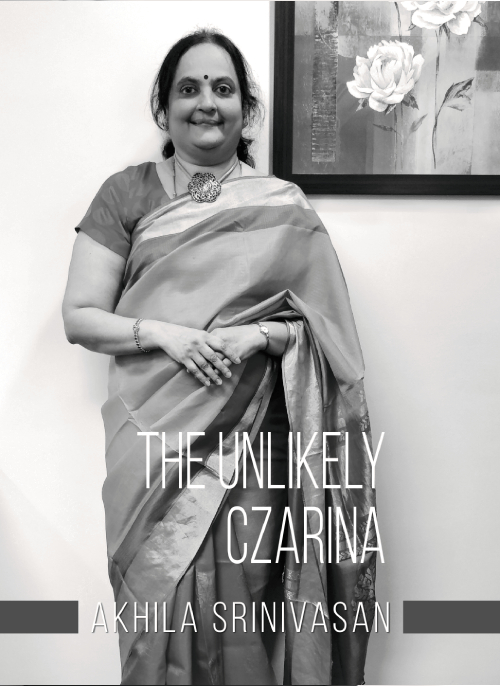Nothing in Akhila Raghuraman’s
growing up years suggested she
would one day be a corporate
czarina. There was no denying
her exceptional talent. Brilliant
in academics and outstanding in debates,
she was a doughty warrior. But going
this distance is not something even she
bargained for.
The garden did not smell of roses. Consider these. Akhila married in her fifth year
at college, something no career-seeking
woman would do. Soon, Hari, her son was
born, and it was not until 1986, four full
years after she left college, that she thought
of gainful employment. A year earlier, a
young prime minister was talking about racing India into the 21st century. Yet, Akhila’s
first thoughts were traditional; to be an assistant professor in a city college or a probation officer in a public sector bank. You
don’t associate that with the mindset of an
aggressive and ambitious lady that she is.
Also, in the 1980s, women were just beginning to leave the comfort of their homes and
enter offices. They weren’t eyeing for the
corner room.
That’s why I say nothing in her earlier
days suggested she would race this distance
and at this pace. People who know her are
justifiably proud of what she has achieved.
When Akhila stepped into corporate India, the country had not yet opened its
economy. The later-day Adam Smith, Dr.
Manmohan Singh, was still a bureaucrat.
Wonderkid Sachin Tendulkar, whom Akhila
admires, had not arrived on the international scene. Bofors was beginning to become a household name, and the smoking
gun threatened to besmirch Rajiv Gandhi’s
fair name. Most importantly, there weren’t
many celebrated czarinas in the business
world to look up to as role models.

